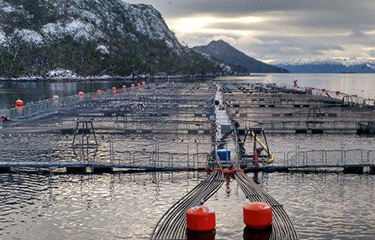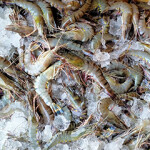Chilean environmental court nixes Nova Austral's plans to transfer farming sites

A Chilean court has ordered a halt on Punta Arenas, Chile-based salmon farmer Nova Austral’s plan to transfer some of its farming sites.
Chile’s Third Environmental Court in Valdivia ordered Nova Austral to put its plan to transfer some of its farming sites from the Alberto de Agostini National Park to part of the Kawésqar National Reserve – both of which are located in the southernmost region of Magallanes – on hold.
The company’s plans included two projects that would agglomerate its existing operations. The first project, Clarence 6, would merge Nova Austral’s existing Aracena 8 site with part of its Escondida site and relocate it to the Seno Dineley sector, located on Clarence Island in the Kawésqar National Reserve.
Its Clarence 14 project would bring together Nova Austral’s existing Aracena 6 site with another part of its Escondida site, to be relocated to the Ensenada Wilson sector, also located on Clarence Island.
The move would is part of the company’s voluntary plan, dating from 2019, formed as the result of a deal with the Chilean government to relocate 26 concessions inside the park’s boundaries to other locations in the Magallanes region. At the time, the Ensenada Wilson region was proposed for the relocation by Chile’s fishery sub-secretary, Subpesca, and passed through a series of requirements and processes for comment and evaluation.
Nova Austral has considered it legal to develop aquaculture activities in areas deemed national reserves – areas that are not as highly protected as national parks. However, local communities and environmental organizations have pushed the Chilean government to rule that salmon farming is not compatible with the conservation objectives of national parks, including the Kawésqar Reserve.
The latest court ruling appears to support this position. In its judgment, the judges overhearing the case said it is not possible to ensure the projects’ compatibility with environmental protection of the Kawésqar National Reserve, as the impacts on the protected area are still unknown. The court also found that the proposed projects’ navigation and vessel transit routes have the potential to negatively impact marine fauna, tourism, and natural scenery in the park.
The ruling could interfere with a national plan to relocate salmon farms to the waters around Clarence Island - there are another six salmon-farm relocation projects that propose transfers to the same area.
Nova Austral did not respond to requests from SeafoodSource for comment.
The Kawésqar National Reserve, extending over 2.8 million hectares, making it the second-largest park in Chile, has been the subject of intense focus from environmental groups in the past few years. However, the coastal areas in the park are considered a national reserve, a category that has less protection than a park. The reserve is reportedly home to 67 salmon-farming concessions.
In May 2022, National Geographic released a documentary advocating for the protection of a large portion of Chile's coastline from further commercial salmon-farming development. The documentary, titled “Canoeros: Memoria Viva” (Canoeists: Living Memory), and its creators called for Chile's Kawésqar National Reserve to be classified as a national park, effectively halting farming in the region. That was followed in October 2022 by a Greenpeace production that also called for an end to salmon farming in the Kawésqar National Reserve. Many of the allegations against salmon farming put forth by the film were challenged by the salmon industry.
Chile President Gabriel Boric has said that there should be no salmon farming in protected areas, and is reportedly considering a moratorium on the farmed salmon sector that would halt its expansion in the country.
Nova Austral has also been under intense public scrutiny since 2019 over the false reporting of mortality figures, over which it has faced criminal charges, followed by fines for reported inadequate mortality and solid-waste management, and sanctions for overproduction.
Nova Austral has said the malfeasance was “completely misaligned” with the business ethics of Nova Austral, and its board of directors commissioned an internal and independent investigation to detect and correct the internal problems that led to the misreporting. That effort resulted in a a complete overhaul of the company's senior management.
Photo courtesy of Nova Austral






Share